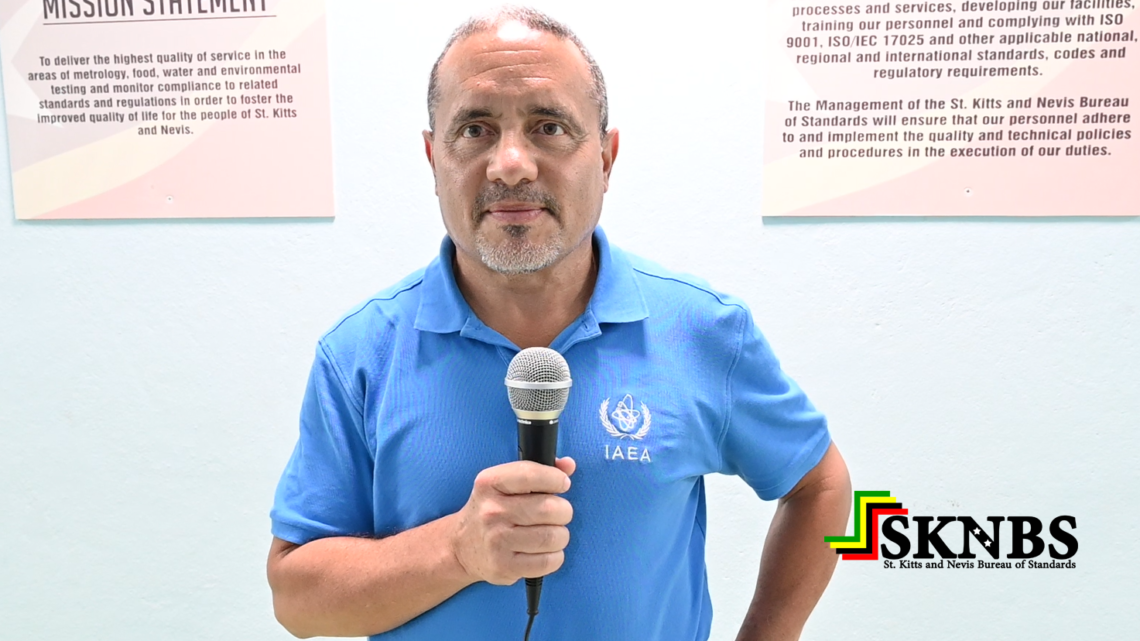
In a collaborative effort to enhance radiation safety measures, a team of experts from the International Atomic Energy Agency (IAEA) Headquarters in Vienna, including United Nations (UN) inspectors Juan Carlos Benitez and Zhour Yahyaouy, concluded a comprehensive radiation inventory in both St. Kitts and Nevis this week, from November 20 to 24, 2023.
The inspection team worked closely with local authorities, including representatives from the St. Kitts and Nevis Bureau of Standards (SKNBS), the Customs and Excise Department, and the Ministry of Health, engaging in training sessions and identifying radiation sources across various facilities. This joint initiative aimed to bolster the Federation’s capacity to detect and manage radiation risks effectively.
Juan Carlos Benitez, one of the UN inspectors, emphasized the significance of conducting such an inventory.
“It is important because it is the way we can guarantee that the public is not exposed to radiation unnecessarily,” he explained. “At the same time, it’s important to ensure that the users of this radioactive material know how to use the equipment and are protected. In the end, the intention is to protect the public on one side and protect the workers exposed to this equipment on a day-to-day basis.”
Mr. Benitez shared surprising findings from the inspection. He stated that for a small nation, they expected to find fewer radioactive materials.
“To our surprise, there are many more radioactive materials than we were expecting, which is positive because it means that there is already a culture of using this kind of sophisticated equipment to guarantee road construction or any other construction,” said the inspector. “By using this kind of equipment there is a guarantee of the quality of the foundation for the roads or for other construction.”
He emphasized the importance of bringing these materials under control, stating, “These sources have to now be in better control because they were not under control. So, one of the main findings is that, okay, they are here already, now, we have to put them under control. Under control means that the Bureau of Standards, as the regulatory body, has to provide them with authorization, inspect them as to how they are stored, how they are using these devices, and control disposal and ensure they are safe and securely stored in order not to create any unnecessary exposure to the public.”
Mr. Benitez praised the professionalism and openness of the local facilities, noting, “Every facility we visited was very open, very transparent. They were very receptive also to any of our recommendations to have, for example, proper windows and proper doors for the shielding of the facilities to protect the public. Everyone was very receptive and very open in communication.”
St. Kitts and Nevis, being a member of the International Atomic Energy Agency (IAEA) since 2022, designates the Bureau of Standards as the official contact point for radiation safety.
Starting in 2024, all vehicles entering the Federation will undergo radiation inspections before boarding any vessel. Customs, Health, and Port officials will also be equipped with radiation detection devices to identify and address potential threats at the ports.
The successful completion of this mission marks a significant step forward in ensuring the safety and security of the Federation against potential radiation hazards.
-End-
